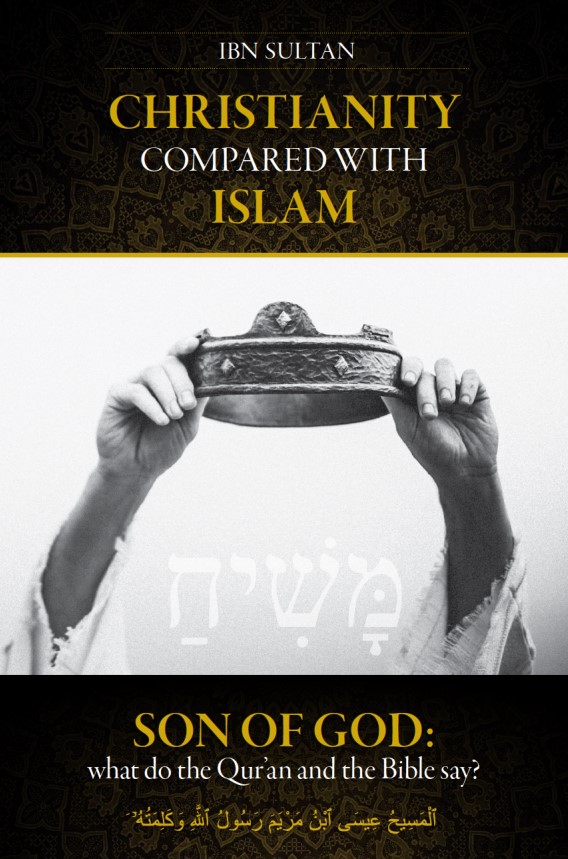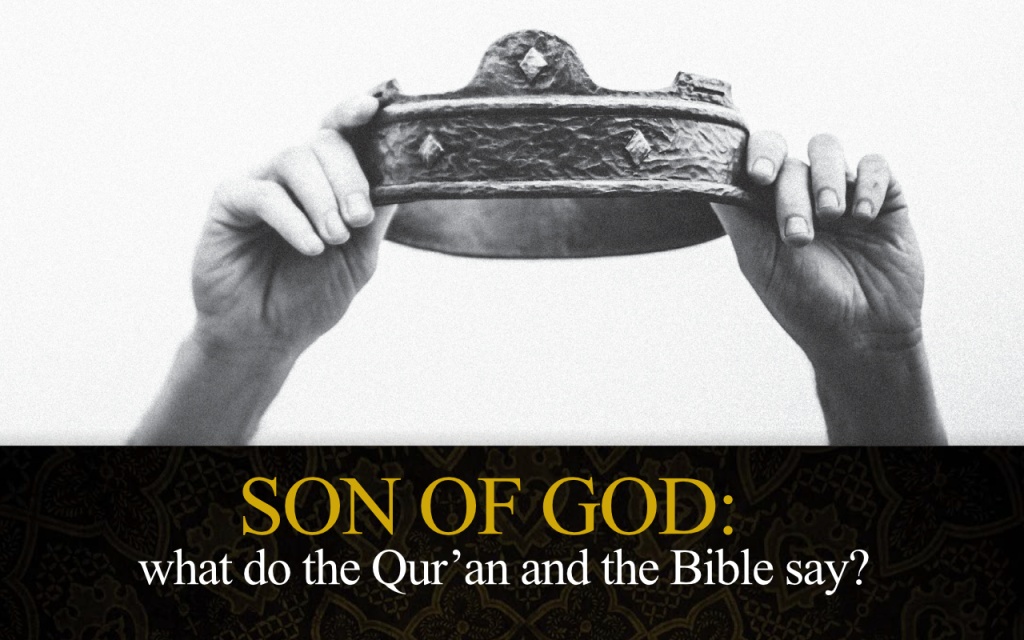Is Jesus The 'Son Of God' Because He Was Born of a Virgin?
Son of God: what do the Qur'an and the Bible say?


Chapters
Christian Perspective
Jesus’ birth is described by some of his earliest followers. Matthew’s Gospel originated with Jesus’ own disciple, an educated tax-collector. Luke’s Gospel was written by a medical doctor from Antioch after gathering evidence from Jesus’ closest followers. In these two accounts of Jesus’ life, the title ‘Son of God’ is used 25 times with reference to Jesus. But what does it really mean?
In Luke’s Gospel{3}, Jesus’ birth is announced to Mary, a virgin, by the angel Gabriel. Mary is told to name him Jesus. The angel Gabriel says Jesus will be called ‘the Son of the Most High’. He will sit on the throne of David and his kingdom will never end. The angel is very clear: Jesus is coming into this world for a reason – to rule as a king forever.
But why is Jesus called ‘the Son of the Most High,’ when ‘the Most High’ means God?
First century Jews were very familiar with the message of the previous prophets, and many anticipated a specific figure - the Messiah (meshiach, or ‘Anointed One’) – a unique ruler who would be called ‘the Son’ of God.
This is why Jewish religious leaders frequently asked Jesus, “Are you the Messiah? The Son of the Blessed One?”{4} By asking Jesus if he was the “Son of the Blessed One”, these teachers were not asking how Jesus was born: they wanted to know if he was God’s promised Messiah (‘Christos’ in Greek). Jesus’ close disciple Simon Peter also makes this connection: “You are the Christ, the Son of the Living God,” he says.{5}
The important point is this: Jesus’ Jewish followers, and Jewish enemies, understood ‘Son of God’ to be a reference to Israel’s promised Messiah.6 No one in the Bible connects Jesus’ title, ‘Son of God,’ to his virgin birth.
Islamic Perspective
As a Muslim, you will recognise the seventh-century Qur’an as Allah’s most perfect revelation to humanity. This Qur’an gives a different account of the birth of Jesus (‘Isa). Here, as in the Bible, the story begins with the angel Gabriel bringing good news to Mariam (Mary) that she would bear a son. She was to name him ‘Christ Jesus’: he would be righteous, speaking to humanity ‘in his cradle and in his manhood.’{7}
Although the Qur’an’s description bears some similarities with that of the Bible, it does not directly explain the significance of Jesus’ title, ‘Christ.’ There is no definition in the Qur’an or the Hadith as to the meaning of the term ‘Messiah’ (al-Masih). In particular, the Qur’an doesn’t mention any connection with the promises made through earlier prophets about a coming Messiah.
In addition to the Qur’an, your beliefs about the virgin birth may be influenced by the insights of respected early Qur’anic commentators, such as Ibn Kathir (1300-1373), who is recognised especially by Sunni Muslims.{8} His commentary describes the Messiah as “a mighty son who will have a great future”:
“Isa [Jesus] was called “Al-Masih’’ (the Messiah) because when he touched (Mash) those afflicted with an illness, they would be healed by Allah’s leave.”{9}
So the Qur’an and respected Muslim scholars agree that Jesus was born of the virgin Mary. Jesus is a miraculous, mighty son with a great future, and ‘a word’ from Allah. His birth is a miraculous event, a sign (ayah) of Allah’s power (Quran 3.50; 21:91). Muslims have a high regard for Mary - but, significantly, Jesus is only presented as her son, and never as the Son of God.
Comparison
Muslims insist that Jesus holds a special place within Islam, but do not see his honoured status and virgin birth as reasons to consider him divine. Jesus’ birth is understood simply a sign of the power of Allah. The Qur’an still mentions Jesus’ miracles, intellect, eloquence in childhood and honoured titles. Muslims will argue there are plenty of reasons to honour Jesus without having to call him Son of God.
The Bible and the Qur’an agree:
- Jesus’ birth was announced by the angel Gabriel
- Jesus was miraculously born of the virgin Mary, by God’s will
- Jesus is ‘Christ’, the Messiah (Masih)
But the texts diverge:
- In the Qur’an Mary is visited by the angel Gabriel, or several angels, bringing news that she will bear a son.{10} Though Mary is told that she will bear a son, al Masih (Messiah), the Qur’an does not explain the significance of this title.
- In the Bible, the angel Gabriel visits Mary with news of broader significance: God is going to fulfil his promises, recorded centuries earlier in the writings of the Old Testament prophets. The promised Messiah would sit on a throne as king forever, and ‘save his people from their sins’ (Matthew 1:21).
Qur’anic understanding: The Qur’an implies that Christians believe Jesus is the Son of God just because he was born of virgin Mary. But being born of a virgin is no sign of divinity, say Muslim scholars. Take Adam as an example. It simply shows the power of Allah.
Christian understanding: The early Jews and non-Jews didn’t believe Jesus was the Son of God just because of his virgin birth. They believed Jesus was Israel’s promised Messiah, foretold by the prophets.
Does it matter that Jesus was born of a virgin?
What was the purpose of Jesus’ miraculous birth? A large number of Muslims will say that Jesus’ virgin birth simply shows the power of Allah, who needs only to say ‘Be!’ to bring something into existence.11 This interpretation is problematic. After all, most people of faith do not need convincing that God is able to create something out of nothing. That’s how God created the world, and Adam, who had neither father or mother. Would this not imply that Adam is a greater sign than Jesus?
For Christians, the virgin birth has significance for many reasons{12}:
- Jesus fulfils prophecies from centuries earlier, which promised the arrival of an eternal king over God’s kingdom{13}
- In Jesus, God enters his creation without being created by another; he chooses to dwell among the people he created.{14}
- Jesus, the Son, exists before all things were created, but takes on human nature alongside his eternal, divine nature.
- Jesus would be a ‘second Adam’: where Adam’s fall into sin brought death to the world, Jesus’ continued sinlessness would bring life{15}
“For God has done what the law [of Moses], weakened by the flesh, could not do. By sending his own Son in the likeness of sinful flesh and for sin, he condemned sin in the flesh[.]” (Romans 8:3)
Questions to consider
- Muslims often say Christians call Jesus the Son of God because he was born without a human father. If this is so, why is Adam – who had neither father or mother – not considered divine by Christians or Jews?{16}
- Can you find any verses in the New Testament suggesting people saw Jesus as the Son of God because of his virgin birth?
- Ibn Kathir connects the title of Messiah with the Arabic word ‘masah’ (anoint) as a reference to Jesus healing people. But Hebrew scholars connect this title to the word, ‘mashiach’ (the anointed one). Does Kathir’s view fit reflect the Bible’s descriptions of what the Anointed One will do? (Psalms 2, Psalms 110, Matthew 22:41-46){17}
Ch. 3 - Is Jesus the 'Son of God' Because He Performed Outstanding Miracles? »